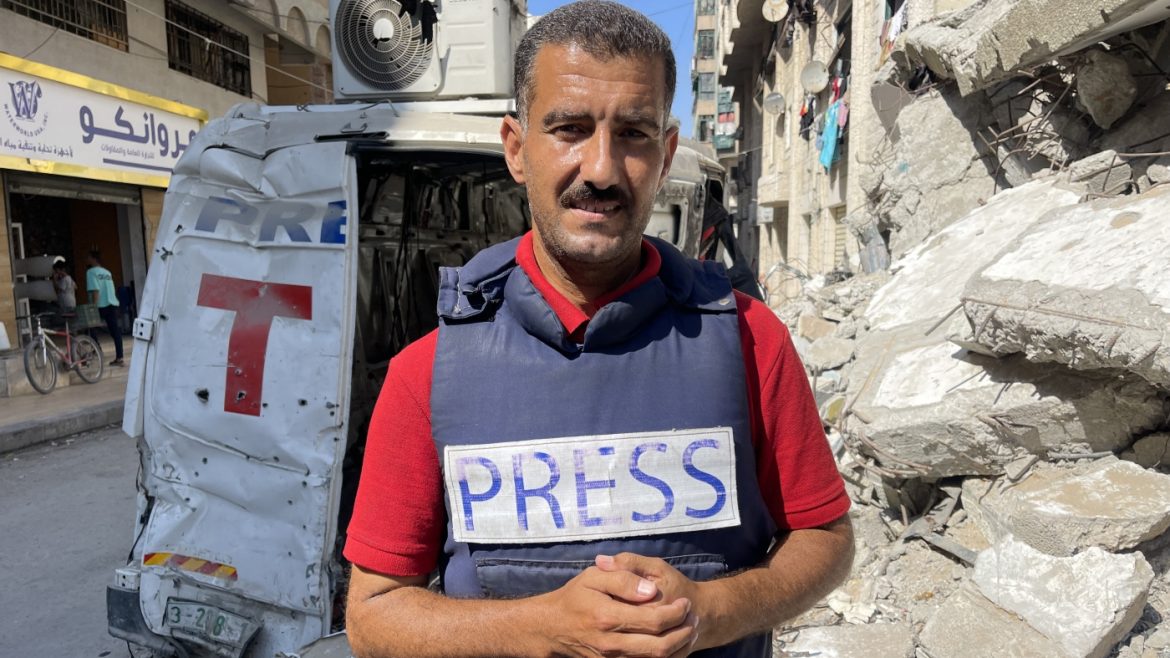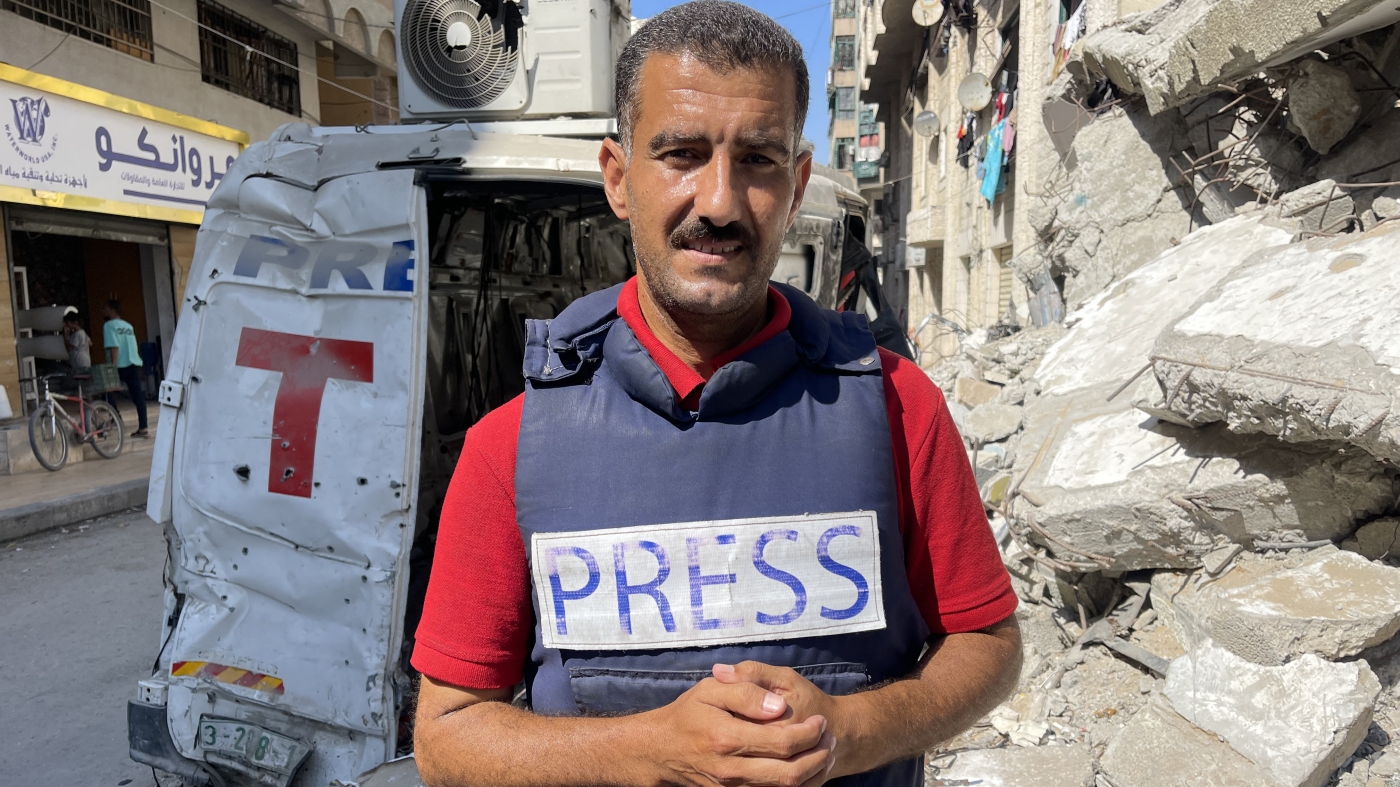A Chronicle of Crisis: AFP, Journalists, and the Humanitarian Catastrophe in Gaza
The Unfolding Tragedy
The Gaza Strip is a region in perpetual crisis, where the echoes of conflict are drowned out only by the cries of a population teetering on the brink of survival. This is a place where journalists, particularly those working for Agence France-Presse (AFP), are not just witnesses to history but active participants in a struggle for truth amid the chaos. They navigate a landscape where every report could be their last, where the ink of their pens is as precious as the crumbs of bread they scavenge for their families. This report delves into the multifaceted challenges faced by AFP journalists in Gaza, the agency’s desperate efforts to evacuate them, and the broader implications of this crisis for press freedom and humanitarian aid.
The Dire Humanitarian Situation in Gaza
The humanitarian crisis in Gaza is a tapestry of despair, woven with threads of starvation, disease, and despair. The United Nations human rights office reports that over 1,000 Palestinians have been killed since May while seeking food, a stark testament to the desperation that drives people to risk their lives for basic sustenance. The crisis is not just about the lack of food; it is about the systematic erosion of dignity and hope. Child malnutrition rates have surged since March, coinciding with tightened restrictions on aid. The blockade of aid into northern Gaza has turned the region into a labyrinth of suffering, with the UN Relief and Works Agency (UNRWA) reporting ongoing obstacles that hinder the delivery of essential supplies.
The situation has reached a point where at least 15 people, including four children, have reportedly died from hunger. These are not just statistics; they are individuals with names, dreams, and families. The reopening of two bakeries in Gaza City offers a glimmer of hope, but it is a fragile light in an otherwise dark tunnel. The question remains: how long can these bakeries sustain operations in the face of ongoing challenges?
The Plight of AFP Journalists
Amidst this humanitarian catastrophe, AFP journalists in Gaza are facing a unique and harrowing challenge. They are not just reporting on the crisis; they are living it. These journalists are struggling with safety concerns and the need to secure basic necessities for their families. The AFP journalists’ union has voiced their concerns, emphasizing the starvation faced by their Gaza reporters. The news agency has called on the Israeli government to allow its freelance journalists to leave the Gaza Strip due to the worsening hunger.
Phil Chetwynd, AFP’s global news director, highlights the difficult position these journalists face, torn between their professional obligations and their families’ welfare. The French government has acknowledged the challenge in evacuating AFP reporters from the Gaza Strip, noting the heavy toll on journalists covering the conflict. These journalists are not just reporting the news; they are fighting for their lives and the lives of their loved ones.
Efforts to Evacuate AFP Journalists
Given the deteriorating conditions, AFP has been actively seeking to evacuate its journalists from Gaza. The French Foreign Affairs Ministry has stated it is working to help evacuate French citizens, their dependents, and employees of French organizations like AFP. However, these efforts have been complicated by the ongoing conflict and restrictions on movement in and out of Gaza. The Israeli military has informed international news organizations, including Reuters and AFP, that it cannot guarantee the safety of their journalists operating in the Gaza Strip, further complicating the situation.
The evacuation process is not just a logistical challenge; it is a moral dilemma. Journalists are torn between their duty to report and their instinct to survive. The international community must recognize the urgency of this situation and take concrete steps to ensure the safe evacuation of journalists from conflict zones.
Attacks on Media Infrastructure
Adding to the dangers faced by journalists is the reported targeting of media infrastructure. AFP’s Gaza City bureau has been significantly damaged by a strike on the building. A four-month investigation revealed that the AFP office came under direct tank fire. These incidents raise concerns about the safety of journalists and the deliberate targeting of media outlets.
The targeting of media infrastructure is not just an attack on buildings; it is an attack on the truth. It is an attempt to silence the voices that bear witness to the suffering in Gaza. The international community must condemn these attacks and take concrete steps to protect journalists and their infrastructure.
Implications for Press Freedom
The situation in Gaza raises critical questions about press freedom and the ability of journalists to report on conflicts without fear for their safety. The inability to guarantee the safety of journalists, coupled with reports of attacks on media infrastructure, hinders the flow of information from the region. This has broader implications for transparency, accountability, and the public’s right to know about the events unfolding in Gaza.
The risks faced by AFP journalists and others highlight the urgent need for measures to protect journalists in conflict zones and ensure their ability to report freely and safely. Press freedom is not just a luxury; it is a fundamental right that must be protected at all costs.
Israel’s Perspective
The Israeli government denies using starvation as a weapon of war and argues that its actions do not violate the Genocide Convention. Despite these denials, the restrictions on aid and the dire humanitarian situation raise concerns about the impact of Israeli policies on the civilian population in Gaza. The reopening of two bakeries in Gaza City offers a glimmer of hope, but the question remains how long they can sustain operations given the ongoing challenges.
The international community must hold Israel accountable for its actions and ensure that its policies do not contribute to the suffering of the civilian population in Gaza. The use of starvation as a weapon of war is a violation of international law and must be condemned in the strongest possible terms.
The Role of International Organizations
International organizations, such as the UN, play a crucial role in addressing the humanitarian crisis in Gaza and advocating for the protection of civilians, including journalists. The UN’s reporting on the number of Palestinians killed while seeking food highlights the severity of the crisis. UNRWA’s efforts to deliver aid and provide essential services are hampered by ongoing restrictions. These organizations continue to call for increased access and the protection of humanitarian workers and journalists.
The international community must support these organizations and ensure that they have the resources and access they need to deliver aid and protect civilians in Gaza. The role of international organizations is not just to provide aid; it is to advocate for the rights of the most vulnerable and hold those responsible for the crisis accountable.
Conclusion: A Call for Action
The situation facing AFP journalists in Gaza reflects a broader crisis of humanitarian proportions and press freedom. Their struggle to report on the conflict while facing starvation and safety risks underscores the urgent need for action. The international community must prioritize the protection of journalists, ensure the delivery of humanitarian aid, and work towards a resolution that addresses the root causes of the conflict. Failing to do so will only perpetuate the cycle of violence and suffering in Gaza.
The world needs to recognize the intertwined fates of the press and the people in Gaza. The journalists who risk their lives to report on the crisis are not just witnesses; they are heroes. Their stories are not just news; they are a call to action. The international community must heed this call and take concrete steps to address the humanitarian crisis in Gaza and protect the rights of journalists to report on it. The time for action is now.


